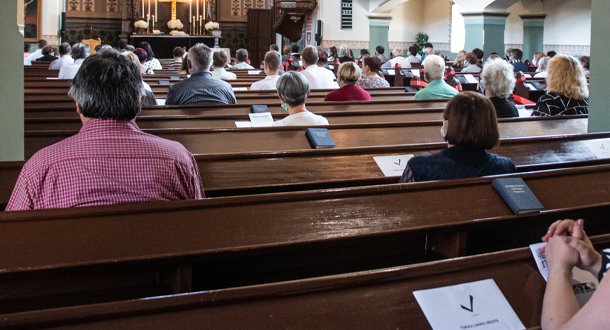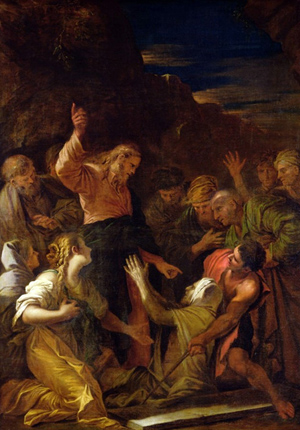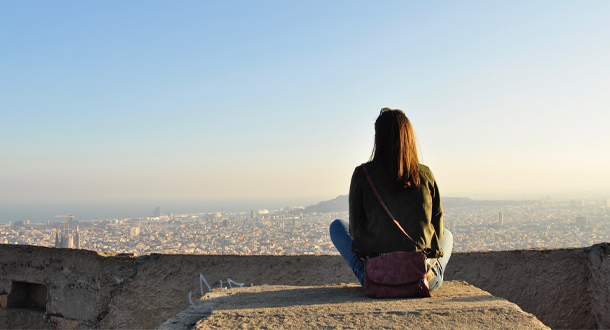Memorial of Saint Frances Xavier Cabrini
Scripture:
Reflection:

Today’s Gospel continues with the same Apocalyptic or end times focus as we move through the final weeks of the liturgical year. These readings—particularly, the Gospels, focus us on the idea of the second coming of Christ and our readiness. Somehow over the centuries instead of looking to the second coming of Christ; Christmas, and the newborn baby, Jesus found its way into the Advent waiting. One commentary I read suggests that Luke borrowed language from the Old Testament books of Ezekiel and Daniel who both use the “Son of Man.” This text reminds me of our current situation of the pandemic, we hear that one person has been diagnosed with Covid-19 while the other one is symptom-free. At least that is how it feels in Southern California, where we are experiencing a surge in cases. So perhaps when we read this text it may bring fear and worry to our hearts. I have often wondered what a new Christian feels when they read this text, it is slightly disconcerting, to say the least.
However, the Church does not want us to get wrapped up in concerns about end times but rather to pay attention to the totality of the Scriptures. This is evident in our first reading from the Second Letter of St. John. The author of this letter reminds us that we have nothing to worry about if we stick to the original command, “from the beginning,” to love one another. We do this by walking according to his commandments. It is quite simple. I read a quote today that helps speak to this point, “To love is always letting go of a fear.” (Center for Action and Contemplation 11-10-2020 reflection) I might suggest today’s Scripture is an invitation to let go, to surrender our fears about our future into the hands of Jesus.
Today is also the memorial of St. Frances Xavier Cabrini who was the Italian foundress of the Missionary Sisters of the Sacred Heart. She overcame many obstacles in her dream of entering religious life. She and six of her community took the advice of Pope Leo XIII and came to the United States to minister to the Italian immigrants. Coincidentally, this same Pope wrote an encyclical letter in 1891 which is considered foundational to the Church’s teachings on Social Justice—Rerum Novarum. Even then he had an awareness and concerned for the poor. She and her community ministered to orphanages, established schools, and eventually hospitals. She later became an American citizen and died on December 22nd, 1917. She was canonized in 1946 and is the first citizen (naturalized) saint of the United States. Mother Cabrini, as she was known did not shy from loving and serving Christ in the poor. That desire to love compelled her to reach for her dream. As the words of the psalm suggests, “Blessed are they who follow the law of the Lord.” (Psalm119). So today, may we let go of anything that keeps us separated from this love. May we trust in the mercy of Christ to meet us in eternity and may we strive to follow the law of the Lord in joyful hope. Amen.
Jean Bowler is a retreatant at Mater Dolorosa Passionist Retreat Center in Sierra Madre, California, and a member of the Office of Mission Effectiveness Board of Holy Cross Province.







